Relevant Overviews
- Communication Strategy
- Content Strategy
- Online Strategy
- Online Community Management
- Social Media Strategy
- Content Creation & Marketing
- Online Architecture
- Digital Transformation
- Change & Project Management
- Thinking tools
- Innovation Strategy
- Communications Tactics
- Psychology
- Productivity
- Social Web
- Media
- Politics
- Communications Strategy
- Science&Technology
- Business

fake news wouldn’t be a problem if people didn’t fall for it and share it. Unless we understand the psychology of online news consumption, we won’t be able to find a cure... online news readers don’t ... care about the importance of journalistic sourcing ... “professional gatekeeping.”... I mocked up a news site and showed four groups of partici…

a post for my Facebook friends about my personal experience with narcissistic personality disorder and how I view the president elect... who almost certainly suffers from it or a similar disorder.

Confirmation bias is usually described as a tendency to notice or search out information that confirms what one already believes, or would like to believe, and to avoid or discount information that’s contrary to one’s beliefs or preferences. This presidential election was undoubtedly the most contentious of any in the memory of most voters... Th…
Let’s take a break from the Donald, Facebook and the end of democracy, and try to focus on what’s important.

Man differs from other animals... he has some desires which are... infinite, can never be fully gratified... Russell points to four such infinite desires — acquisitiveness, rivalry, vanity, and love of power... However much you may acquire, you will always wish to acquire more; satiety is a dream which will always elude you... eclipsed by an…

Power gets into our heads... give us confidence to indulge in our base urges. It can make us less empathetic, more likely to see our own success in a positive light and harshly condemn failures in others...power is only likely to magnify the negative characteristics in a man like Trump... “power simply brings our true nature out into the open”... …

“Capgras delusions,” ... the belief that loved ones have been replaced by identical imposters... the brain has separate modules for analyzing the cognitive aspects of recognition, and for feeling the emotional aspects of familiarity... these functional fault lines in the social brain... have given rise to the contemporary Facebook generation... …

If we think closely about anger, we can begin to see why it is a stupid way to run one’s life... how a leader has to operate: forget about the strike-back mentality, and forge a future of warmth and partnership... He asks only, how shall I produce cooperation and friendship?

Even if we do feel an emotion, there are parts associated with it that we aren’t usually aware of.

How to make sense of Donald Trump’s election? Here are some articles which helped me. Maybe they’ll help you.
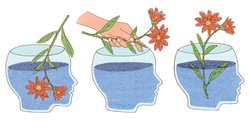
all of us, even highly intelligent people, are prone to irrationality. Across a wide range of scenarios, the experiments revealed, people tend to make decisions based on intuition rather than reason... those with a high I.Q. were, if anything, more prone to the conjunction fallacy... rationality, unlike intelligence, can be improved through traini…
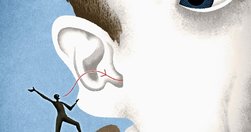
when people are confronted with moral dilemmas, they do indeed respond differently when considering them in a foreign language than when using their native tongue.

repeating a lie, which is generally part of the debunking process, can reinforce it. ... confirmation bias leads people who want to believe something to believe it even more after they’ve been shown they’re wrong.

In many cases, incompetence does not leave people disoriented, perplexed, or cautious. Instead, the incompetent are often blessed with an inappropriate confidence, buoyed by something that feels to them like knowledge... being in “search mode” on the Internet helps people feel smarter, despite their searches resulting in nothing due to filters blo…
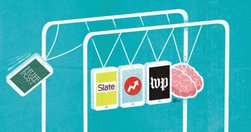
as news outlets tailor their content to addictive platforms to pump up traffic, the distinction between consuming journalism and being wedded to “emails, constant notifications, and social media” is increasingly meaningless... if we are what and how we read, then our thinking will mirror the scattered and shallow tendencies of Web browsing.... …

Barb's job is to convince us that this simple system of thought can account for the messiness of many of our personal and interpersonal relationships, regardless of gender, race, class, age, language, education... Type is intensely democratizing in its vision of the world, weird and wonderful in its commitment to flattening the material diffe…
Cognitive ease is the concept of which when you hear something repeatedly, your brain starts to form connections around it, thus making it easier for you to process later. And since we prefer things to be simple and easy, things that are easy to think about generally makes us feel happier... for newspapers it’s part of the problem that we all face…

what product designers do to your mind. They play your psychological vulnerabilities (consciously and unconsciously) against you in the race to grab your attention. I want to show you how they do it.... The “most empowering” menu is different than the menu that has the most choices... When we wake up in the morning and turn our phone over to see a…

Instead of trying to bludgeon online companies to conform to some opaque standard of objectivity, we need to shift towards more fruitful endeavors... none of the outlets mentioned by name... are particularly well known news institutions... the underlying bias might not be based on institutional outlook, but an internal pressure to cite sources wit…
Great explainer video - accompanying article here.

The American media, over the past year, has been trying to work out something of a mystery: Why is the Republican electorate supporting a far-right, orange-toned populist with no real political experience, who espouses extreme and often bizarre views? ... his support seems to cross demographic lines ... does surprisingly well from the Gulf Coast o…
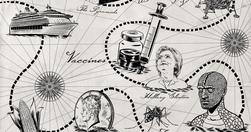
“In 40 years,” Morton added, “as many people will believe a bunch of Arabs knocked down the World Trade Center as will believe that Lee Harvey Oswald acted alone.”

the first crux of Harcourt’s argument: The expository society exploits, rather than represses, our desires. The second ... government and commercial surveillance infrastructures have wholly merged.... Harcourt’s analysis hinges on desire: We want to participate, we are impelled to do so, and we like it. But it seems to me we are as much compelled …

When you put your life online, people think they know 80% of who you are. But internet personas are really only 20% true.... “It seemed like you were using personal experiences to gain approval from ‘the internet’ ... I wondered why the approval of your friends and family wasn’t enough. It felt like a distorted version of you"
In which I studiously avoid curating anything about 2016 or David Bowie.
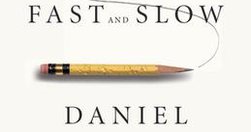
Thinking, Fast and Slow is a best-selling[1] 2011 book by Nobel Memorial Prize in Economics winner Daniel Kahnema...: his early days working on cognitive biases, his work on prospect theory, and his later work on happiness.The book's central thesis is a dichotomy between two modes of thought: "System 1" is fast, instinctive and emotional; "System …

Social media platforms are built with all the insidious effectiveness of gambling machines, but it is possible to come out in front.

the idea that everyone is like us is called the “false-consensus bias.”... Online it means we can be blindsided by the opinions of our friends or, more broadly, America... morphs into a subconscious belief that we and our friends are the sane ones and that there’s a crazy “Other Side” ... that just doesn’t “get it,” ... not as intelligent as “us.”…
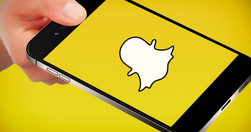
There is no public measure of your ego on Snapchat. No “54 likes” 13469 followers or “423 comments”. When your reader sees your post it doesn’t tell him or her the size of your ego.It’s a huge difference with LinkedIn, Facebook or Twitter. Those three keep reminding you how important the person you’re reading is ... the Snapchat user doesn’t care …

people today are inundated with more bullshit now than ever before... We presented approximately 800 participants across four studies with statements ranging from the mundane to the meaningful. We included some bullshit too... People who were more religious, more likely to believe in the paranormal, and more accepting of alternative medicine were…
Relevant Overviews
- Communication Strategy
- Content Strategy
- Online Strategy
- Online Community Management
- Social Media Strategy
- Content Creation & Marketing
- Online Architecture
- Digital Transformation
- Change & Project Management
- Thinking tools
- Innovation Strategy
- Communications Tactics
- Psychology
- Productivity
- Social Web
- Media
- Politics
- Communications Strategy
- Science&Technology
- Business